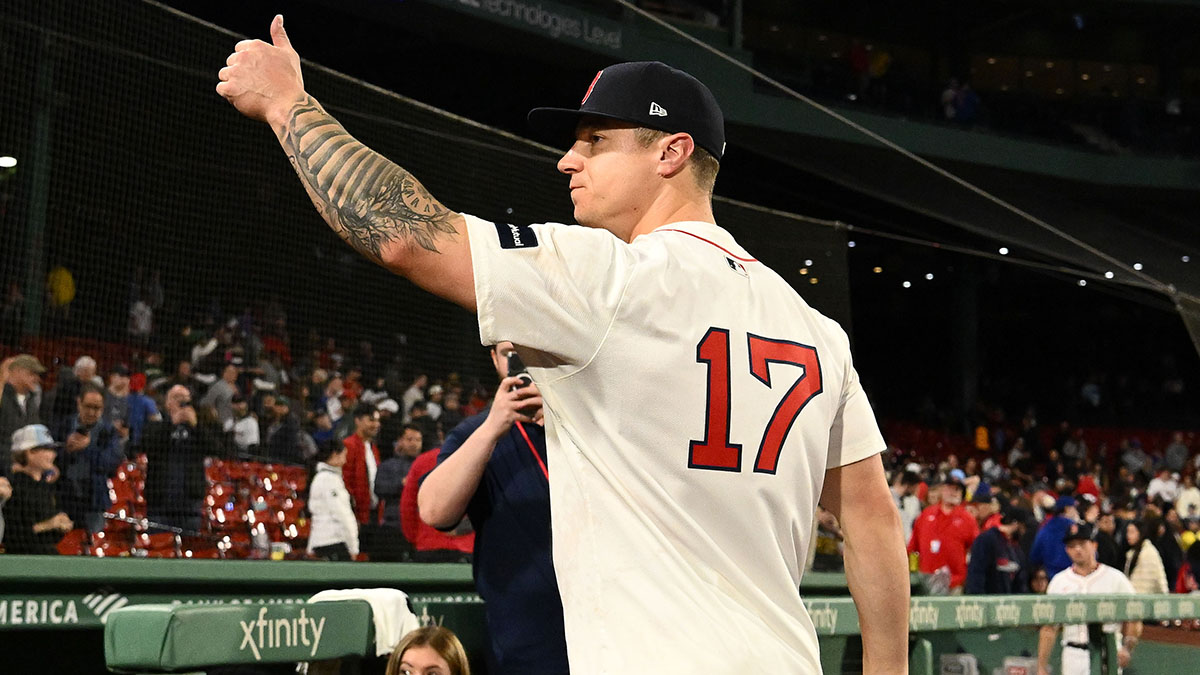During his many decades in film, Alfred Hitchcock mastered the art of the MacGuffin, a storytelling device that's essential to driving the plot, but otherwise meaningless. Picture the briefcase in Pulp Fiction, the Ark of the Covenant in Raiders, or Monty Python's Holy Grail.
MacGuffins are imbued with mythical importance. When Sydney Greenstreet purrs about "the black bird" in the Maltese Falcon, we understand the object's significance in his world, even if all we're talking about is a nondescript statuette from the prop department.
The beauty and utility of the MacGuffin is the way in which neither the audience nor the characters question the nature of its importance. It is the stuff dreams are made of, it is Rosebud, it is why Private Ryan must be saved. The less we think about it in specific terms, the better.
Stay in the game with the latest updates on your beloved Boston sports teams! Sign up here for our All Access Daily newsletter.
If you're wondering what this has to do with baseball, bear with me. With next Friday's MLB trade deadline approaching, I've been thinking of MacGuffins because baseball's owners have foisted one upon us in the expectation that we'll accept it without critical examination.
It is, of course, the luxury tax.
No three words have put more money in the pockets of baseball's richest owners, including the Boston Red Sox' John Henry, than "luxury tax threshold." The general fan may not know the specifics of this line that cannot be crossed, but it's effectively a tool that saves the owners from themselves while allowing them to justify all manner of austerity.
In the case of the 2021 Red Sox, remaining tethered to this limit means their payroll will not top $210 million. With holes at first base and maybe in the rotation and bullpen, too, the team will be in the market for upgrades over the next 10 days, and I have little doubt Chaim Bloom will act, because stasis is not generally a roster-building principle he values.
Boston Red Sox
Tomase: Why Chaim Bloom wants to wheel and deal this month
The question is how the Red Sox will add. They are basically up against $210 million already, so any additions must either be offset by outgoing salaries, or the team can simply eat money, exceed the threshold, and accept the consequences.
And what might those consequences be? Baseball likes dealing in percentages and escalators and surtaxes, amorphous terms that scare us more than saying Candyman into a mirror. But if we do a little math, the numbers aren't nearly as terrifying.
Since the Red Sox reset their luxury tax penalties last year, they'll be in the "first-time offender" class if they go over this year. (Luxury tax payments are calculated at the end of the season.) That means they'll owe a penalty of 20 percent on the first $20 million they spend over $210 million.
Given that players acquired on July 30 will have their salaries prorated, it's unlikely the Red Sox could spend more than $20 million even if they acquired three stars. For instance, Cubs first baseman Anthony Rizzo's $16.5 million salary would only count as $5.5 to $6 million if he's traded before the deadline.
Twenty percent of $20 million is $4 million, or a little less than the Red Sox are paying fifth starter Martin Perez. They wouldn't lose draft picks or international bonus money by going over, provided they don't sign any free agents this winter who have received qualifying offers. But given Bloom's emphasis on the future, it's unlikely the Red Sox plan to surrender draft picks for free agents anytime soon, anyway.
So that leaves us with $4 million being a price Henry is potentially unwilling to pay to go for a World Series in a season without a clear favorite. It's a credit to Bloom that he has built a winner this quickly while using the club's financial might exactly once -- to buy $9 million reliever Adam Ottavino and a prospect off the cash-strapped Yankees (?!?) this winter.
New York was paying homage to that MacGuffin, too, and look where that's gotten it -- fourth place. No one's saying the Red Sox suddenly need to spend recklessly or risk their future. Bloom should protect as many prospects as possible, because they're the foundation of sustained success.
But let's not pretend they can't throw their financial weight around. They're blessed with resources, and they shouldn't let fearmongering over the dreaded luxury tax convince you otherwise.


